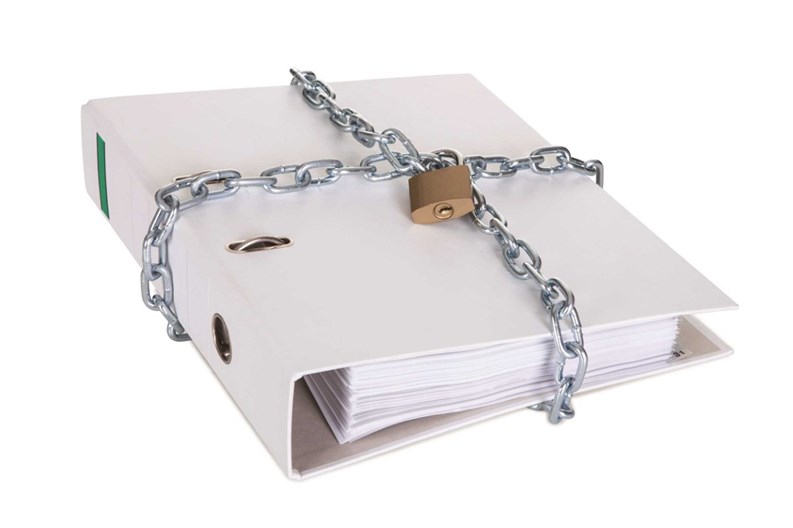Big purchases come with big reams of paperwork...it’s frustrating, but a fact of life. For co-op shareholders and condo owners, that concept can equate to hundreds of pages of documents outlining everything from the financial status of their residential community to rules on sharing common areas.
Occasionally, unit owners and shareholders require access to such documents, or need copies of materials provided at closing. While it’s impossible to share every document involved with the governance of the co-op or condo, most communities try to make materials readily accessible.
For condos, the basic governing document is the bylaws, and for co-ops, that document is the proprietary lease. “In addition, the offering plan, amendments to the offering plan, articles of incorporation, condominium declaration, and the master deed are also important documents for a building,” says John Czajkowski, management executive for 165 West End Avenue with AKAM Associates.
All owners and shareholders are “provided a copy of each pertinent document when they purchase a unit,” says Czajkowski. “The managing agent of the building is able to supply additional copies as needed, but keep in mind that reproducing these documents in hard-copy form can be expensive due to the large size of some documents.”
Still, though, continues Czajkowksi, “a master collection of each of these documents should be kept in a central location for easy access.”
Dan Wurtzel, the president of FirstService Residential New York, agrees. “Shareholders or unit owners have the right to a building’s books, records, and documents,” he says. “The easiest way to make them accessible is to have them on a website.” Today’s online technology allows for easy access by residents with the proper passwords in hand while maintaining tight levels of security to ensure that only the appropriate people can view those materials.
FirstService Residential, for example, offers a website that is “password protected from the general public,” says Wurtzel. “There are certain levels of priority, so there are documents only the board can see, and documents only residents can see.” Those varying levels of security ensure that information pertaining, say, to a resident’s financial status—any late fees, for example—cannot be viewed by anyone who should not be seeing it.
For buildings or communities that have not uploaded their documents to the web, there are other options for those seeking access to governing and other materials. “You can start with the managing agent,” says attorney Dennis Greenstein, a partner with the New York-based law firm of Seyfarth Shaw. Asking residents to request materials from the managing agent’s office helps ensure that sensitive materials, such as financial records or planning documents, are kept secure and made safe from unauthorized digital uploads or sharing.
Also, says Greenstein, condo residents whose buildings have not gone digital may find copies of their community’s documents through ACRIS, also known as the Automated City Register Information System, hosted by the New York City Department of Finance’s Office of the City Register. According to the official website, ACRIS “is a registration program that is intended to provide notice to property owners when deeds, mortgages, and deed- or mortgage-related documents affecting an ownership interest in real property, have been recorded against a single property in the five boroughs of New York City.”
As Documents Evolve
The documents that govern a co-op or condo community seldom remain stagnant; typically, they change and evolve over time. “If you amend the bylaws, for example, there is a process, and you’re required to notify residents about those changes,” says Wurtzel. “Those changes should be accessible and part of the 21st century.” Meaning that they should be made available online if that is in keeping with established practices for the building.
If online is not an option, then changes are mailed to all residents and shareholders. Informing individuals of changes, though, is imperative in ensuring transparency and adhering to legal requirements.
In tandem with making residents and shareholders aware of changes and updates to documents, boards and managers also must ensure that certain other documents are kept up to date and complete, should they be needed.
“In addition to keeping the bylaws or proprietary lease and supplement materials up to date, it is imperative that the building and managing agent keep a record of all compliance-related documents including licenses, permits, certificates of fitness, and registrations,” says Czajkowski. “Failure to keep these documents up to date may result in fines or even litigation. All financial documents such as annual audits, monthly management reports, statements from financial institutions and budgets must also be kept up to date.”
Certain documents, however, may be off-limits for general review and consumption by resident unit owners and shareholders. These include materials pertaining to “active litigation that may be going on,” says Wurtzel. “That information cannot be accessible.” Resident files also are kept “strictly confidential and only released by court order,” says Czajkowski.
“Boards are required to maintain minutes of all official meetings,” adds Czajkowski. “However, unless stated specifically in the bylaws, the owners or shareholders may not necessarily have access to the minutes of monthly board meetings. When apartments are sold, the attorneys that perform ‘due diligence’ typically ask to review the minutes. They are given access as a courtesy.”
Keeping Communication Open
As long as all rules and legalities are observed, it can be helpful for boards to try and be as open as possible with residents when it comes to sharing information in governing and other types of documents. “The more information you can provide, the more transparency there will be between boards and residents,” explains Wurtzel.
Making forms and other important documents available online not only can help build trust, but also enhance convenience for residents, allowing them to secure information on their own without having to contact their managing agent. Wurtzel’s firm, for example, posts their procedure to sell on the website “so if you’re in a position to go through that, you have control and access,” Wurtzel says.
As seemingly innocuous as documentation can seem, tension can escalate quickly between boards and residents when this subject is called into question. At times, says Greenstein, materials can be used or shared inappropriately by residents, making board members skittish about providing them in the future. That, in turn, can lead to frustration among other residents who want access.
“Boards sometimes feel there are people who are looking for things in the documents that just don’t exist,” says Greenstein. “Things can become very confrontational. You have to try to be sensitive to boards without cutting off the rights that shareholders or unit owners have.” And many of these materials are things that would be shared with individuals considering their own purchase of property in the building or community. There is no reason, Greenstein adds, that a prospective buyer cannot get access to monthly minutes, for example, but boards would be reluctant to share that same information with residents.
An ideal opportunity to share information and documentation is at the annual meeting. These meetings “should be as open as possible,” says Czajkowski, “as long as the board is not divulging confidential or sensitive information. A successful community is governed by board members that trust their neighbors and attempt to share as much information with them as possible. AKAM believes that a concise, well-organized, simple presentation at an annual meeting is more valuable than pages of spreadsheets and rows of confusing statistics.”
Sharing Information
In general, openness and trust go a long way towards building a happy and well-adjusted community of shareholders or unit owners, and part of that trust comes from establishing stable guidelines early in the life of a building. Once expectations are set, there should be no surprises for anyone involved.
When it comes to documents, “the board should state which documents are generally available to residents and which are not,” says Czajkowski. “The latter should come with a logical, reasonable explanation. Personal information about residents—even if it’s seemingly innocuous—should always be closely guarded.”
Helping residents understand what is available to them—both through their managing agent and through any online means—will mitigate the risk of misunderstandings as well. “It should be promoted to the residents that they can access information on the building’s website,” says Wurtzel. “Promote it or else they won’t know. Tell them, ‘here’s how to access it with your password and you can get all of the info that you want.’”
By being forthright, setting expectations and providing easy avenues of access, the problems involved in unit owners and shareholders requesting information or documentation should be few and far between. This holds true especially if residents understand that certain information just cannot be shared, for ethical reasons and the well-being and peace of mind of fellow residents. It is important for individuals to know, though, that their board members and managing agents have a plan in hand should the need to see, read and understand important documents ever arise.
Liz Lent is a freelance writer and frequent contributor to The Cooperator.







2 Comments
Leave a Comment